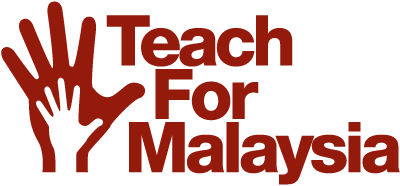How do you think your life would have been different if you hadn’t participated in “The Apprentice Asia”?
I would still be clocking the same 8am to 7pm job I had in Manila. By now, I would have also moved on to a different company had I not joined Apprentice Asia. But that’s the moral lesson. You have to take that leap of faith at times so you can conquer bigger mountains. I took the risk of leaving that job to join Apprentice Asia and it paid off well.
What sets “From Grit to Great” apart from the other motivational books available in the market?
We all speak the same language of finding your passion in life and chasing it. I did prove in this book however that you can transform from zero to hero. Most books are authored by management gurus whose personal lives are private. “From Grit To Great” however is partly motivational and partly autobiography. I bare a lot of my skeletons in the closet in this book because I wanted to inspire others that you can come from humble beginnings, and yet you can also dream big, and finally end up as a victor.
Is “grit” accessible to everyone? How does a person nurture “grit”?
Everyone can develop grit — but you will need inspirations in life, and you need to have a thirst for learning and change. Gritty people are those who want something so bad that they are willing to move mountains to get it. In The Apprentice Asia, I don’t think I was the smartest nor the “best performing” candidate, but I think I was the grittiest. I think that was the reason why I made it until the end.
Grit is a non-intellectual trait. It is developed over time through series of experiences (joyful and painful). To nurture grit, I think one must believe that failure is not a permanent condition, but a stepping stone to achieve future success.
What are some key points from your book that you would want your readers to take away?
I have three key points emphasized in this book through life experiences before and after The Apprentice Asia:
- In school, at work, or in life—it’s not about working hard, but smart. Always be mindful of your productivity because more time spent at work means less time to value other important things in life such as health and family.
- Success is for everyone. You don’t need to be an Einstein, a supermodel, or a royalty to succeed—what you need is grit.
- To succeed in the corporate world, you have to develop yourself into a leader. Leaders don’t stand out, they also stand back to give way for others. Their objective is to clear the path, and to dictate their path for their people. Leadership is puller-ship, not pusher-ship.
Why did you decide to partner with Teach For Malaysia?
A Malaysian friend of mind mentioned to me TFM and how the model works. It really got my interest as I have never seen something like this in which teaching inequity (especially in the government sector) is being fulfilled by the private sector out of volition. I contacted TFM via e-mail and the rest became a fruitful partnership.
In your opinion, why do you think education is important?
It’s cliche to say that knowledge is power but I always subscribe to this. Education is the core solution to one’s progress in the society. It is also the great equalizer. Education does not discriminate the rich from the poor, but it favors those who thirst to learn and share it with others. For this reason, education proves that anyone can succeed in life no matter how humble or gracious his beginnings are.
What are your aspirations for education in the Southeast Asian region?
The most basic challenge of SEA remains to be access to quality education. We have basic issues on government infrastructure and support for public education. I dream one day that the public school system in SEA is as competitive as the private sector’s offering. I also wish that education in SEA would be more appreciative of the value of multiple intelligences. We focus too much on vocational subjects (linear math, science, grammar, etc). I think teaching creativity, entrepreneurship, and financial acumen is important and should also be taught at an early age.
If you could send a message to students in Southeast Asia, what would it be?
Remember that you can never be too small to dream big. Dreaming is arguably one of the things that is free in our society these days so keep on dreaming—and of course, try your best to achieve them. Also, school is not just about getting grades. It is also about learning how to socialize with people, how to make connections, how to become a leader, and how to become disciplined in life. These are soft skills that no textbook will teach you, and they will matter most when you start working or building a career. In the movie, “Catching Fire”, Finnick Odair told Katniss: “Remember who the real enemy is”. This is the same metaphor that every student will face. The enemy is not the challenge of getting good grades. The real challenge is what happens after you graduate.
———————
From Grit To Great is current available for purchase online at http://jonathanyabut.com/book, and will be available in leading bookstores across Southeast Asia beginning mid-November 2014.
Jonathan believes that there are millions of Southeast Asians out there who have the potential to become “BIG” but cannot do so due to lack of financial resources or access to quality education. For every book that you purchase, 10% of the proceeds from the sales of this book will be donated to organizations in Indonesia, Malaysia, Philippines and Vietnam, including Teach For Malaysia. These partners cater to our mission of improving the quality of teaching or providing financial assistance to less-privileged but promising students of Southeast Asia.





